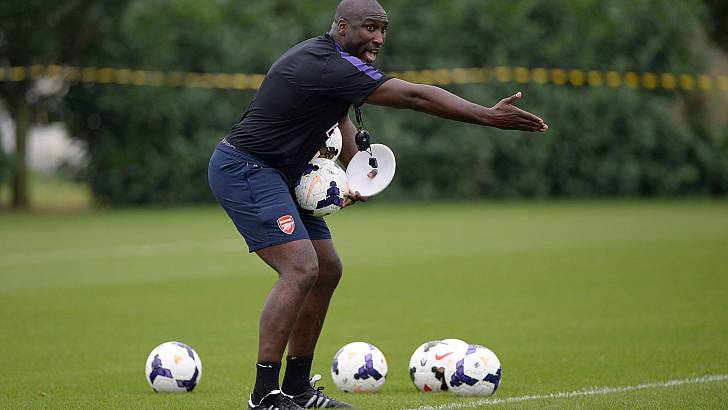Image Credit: [The Guardian]
The Gryphon examines whether there are less opportunities available for black football managers and coaches in England.
Does English football have a problem with employing black managers? Sol Campbell, winner of 73 senior England caps, certainly thinks so, blasting the FA as being “institutionally racist” in a Guardian article in 2013. Campbell has all the hallmarks of what makes a successful manager; a FA UEFA Pro-License and a hugely impressive playing career during which he demonstrated remarkable leadership skills, captaining both Arsenal and England.
Yet, he has spoken about being “prepared to go to a non-league club” simply to get a chance, blaming what he calls the “archaic” attitudes to black players in England. Does Campbell have a point? Upon even the most basic assessment of statistics, it’s clear that he does. His claim of diverging attitudes between black and white ex-professional footballers is substantiated by the fact that a white ex-England player is twice as likely to obtain a managerial job than a black ex-England player. Indeed, there is a malaise at the heart of English football management, where black managers, no matter their playing pedigree, are shockingly underrepresented. This is identified by the League Managers Association’s recent report back in January that the “statistics clearly identify a significant under-representation of BAME individuals.” When this report was released, the damning statistic that only 7.61% of English football league managers are black served only to highlight this.
But what is the cause of this disparity? Certainly, the idea that black managers are in any way less talented than white managers can be immediately dismissed by the examples of Darren Moore, recently named September Manager of the Month with West Brom, and Nuno Santo’s Wolves winning the 2017/18 Championship in breath-taking style with one of the highest points tallies ever recorded. Moreover, even though it is fair to argue that there are less retired black players than white in English football, that still does not explain the level of inequality. Therefore, Campbell’s assertion once more rears its ugly head. Could it truly be that at the heart of English football there is a culture where black coaches are denied the same level of opportunity as their white counterparts? Chris Powell, another former England defender certainly thinks so, describing a “lost generation of [managerial] talent” of black coaches due to disillusionment over their opportunities.
Discussion has to move onto what must be done to reverse this substantial failing. Much discussion centres around the idea of the ‘Rooney Rule’, an NFL policy that requires teams to interview a minority candidate for the head coach role. Although by no means perfect, it would increase the opportunity of BAME coaches to at least have a managerial interview. However, whilst the FA took to adopting it last January, the EFL only adopted it on a voluntary basis and the Premier League remains opposed. To have any success, the ‘Rooney Rule’ needs to be adopted by English footballs flagship competition: The Premier League.

Despite constructive plans for FA improvement, there should be no celebration yet. Even if the FA were to have some success, that does not change the fact that managerial racial rot remains deeply embedded throughout English football. As the Premier League itself remains depressingly quiet on the issue, it’s clear it will take wholesale changes throughout English football to satisfy Campbell and bring about equality for black football managers and coaches.
Samuel Tapper

